Yônosuke Toba
出生 : 1905-03-16, Tokyo, Japan
死亡 : 1958-10-10

Masayoshi Matsukata
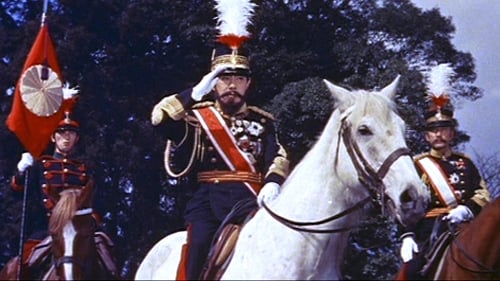
Vice-Admiral Kamimura
Meiji Tenno portrayed the ramp up to the Russo-Japan War. In addition to showing the political events that led to war, it also showed the era from the story of a farm family in rural Japan who sent their son off to war. As such, it could be considered an anti-war movie, showing how, while war is devised by governments, the people do not really understand what war is, and it's combatants often do not know what they are fighting for.

An exciting historical drama in which a beautiful woman secretly solves the family problems of the Owari clan. Hibari Misora plays two roles: a charming princess and a dashing youngster, performs songs and dances throughout the film until the big decisive battle.

Kusuo Abe stars in this kaidan.

Japanese romance film.

Japanese sports comedy film about kendo.

Based on the play ”Mabuta no haha” by famed author Shin Hasegawa, this is the first major starring role for Tomisaburo Wakayama. This heartfelt story concerns a wandering gambler from Banba by the name of Chutaro. Set during the Tenpo Period, Chutaro runs afoul of Boss Sukegoro of Iioka. Pursued by vengeance seeking swordsmen, Chutaro displays his phenomenal martial art skills. Abandoned as a child, he seeks to find his long lost mother, while at the same time fighting off numerous attacks by Iioka’s men.

Factory director
1954 Japanese film starring professional wrestler Rikidozan.

Keita, after his death, was taken to the court of heaven as Defendant No. 1361, where his past was projected. He was formerly a favorite of the Meriken Circus troupe, yet he sinned by exposing a certain woman. During the screening, he realizes what he has done, and fate gives him a chance to redeem his sins.

Japanese film released to commemorate the 7th anniversary of Shintoho's founding.

A married couple looking for an apartment move in with the husband's co-worker, a widower. The husband becomes jealous of the widower and his wife.

Based on the story of Shimizu no Jirocho.
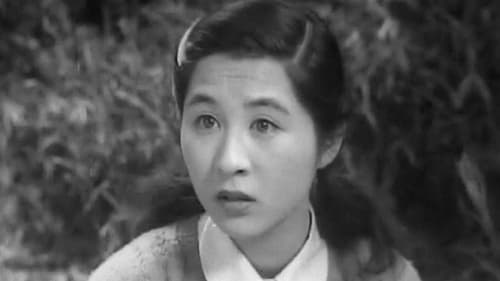
Naosuke Fukuhara
A teenaged girl witnesses her widowed mother's attempt to sustain her family.

A high-born woman named Okuni travels around the country with Gohei, a samurai retainer who is in service to her. They are in search of Tomonojo, who has killed the man who was Okuni’s husband and Gohei’s master, and they cannot return to their lord’s home until they have fulfilled their duty of hunting down and killing Tomonojo.

Japanese drama film.

After mastering swordsmanship at the dojo of Chiba Shusaku, and unable to serve a clan due to his illness, Hirate Miki becomes a ronin who winds up as bodyguard to Shigezo of Sasagawa leading up to an epic battle.

In a small town, according to the homecoming of Professor Ishinaka, the youth culture group was overwhelmed to make a presentation for the summer festival, but because of lack of funds, she works part-time at the spectacle of a tour, a haunted house Especially. The ghost was a struggle amongst the people, it was a great success in filling the crowd, but in the circus hut next to it, Kenji who was supposed to have disappeared was pitiful.

Editor-in-chief
Romantic melodrama

Seiriki Tomigorô
Jidai-geki by Kiyoshi Saeki
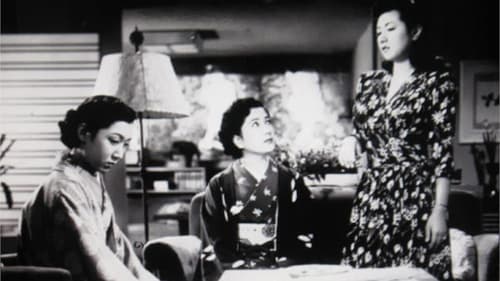
Mr. Jinba
谷崎潤一郎の同名小説を八住利雄が脚色し阿部豊が監督した文芸作。大阪を舞台に美しい四姉妹が織りなす物語。『細雪』はこの後、島耕二(1959年)と市川崑(1983年)により映画化された。四女の妙子を演じた高峰秀子が抜群の演技力を見せる。洪水のシーンに特撮が使われ、豪華な衣装が多数用意されるなど、当時としては破格の製作費がかけられたという。 昭和初期の蒔岡家。長女の鶴子は夫と共に古い暖簾を守り、次女の幸子は婿養子を迎えて芦屋に分家、三女の雪子は幸子夫妻から縁談を持ちかけられるが上手くいかない。四女の妙子は恋仲になったカメラマンが死亡したことから、自暴自棄になってしまう…。

Genzô - Well digger
映画『窓から飛び出せ』は、二組の家族の交流を描いた心温まる作品です。徳山周介(大日方傳)は農業と畜産業を営み、父の理太郎(汐見洋)、弟の勇二(小林桂樹)、妻の藤子(轟夕起子)、4人の子供(うち3人が大日方の息子と娘2人)の8人という大家族で暮らしていました。隣家の藤枝家は、船長だった夫を海での遭難事故で亡くした千栄子(岡村文子)と娘の茉利子(香川京子)、足に障がいがありリハビリを続ける息子の道夫(大日方の息子)の3人家族でした。その徳山家と藤枝家の交流を通して、家族の大切さ、人の優しさが画面いっぱいに映し出されます。
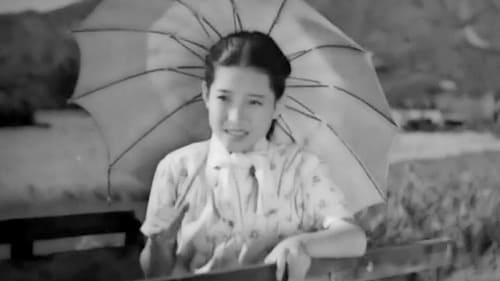
Three humorous love stories set in rural Japan.

Koroku
Saheita, the final heir of a once rich and respectable family, can't refuse the many villagers that come to him for favours and money, even though he is on the brink of bankruptcy. Around town he is better known by his nickname Mr. Shosuke Ohara.

Tanuma Kandayuu is a high class samurai of the house of Nabeshima. He finds a lavish board of Go (a Chinese Board game) at Kinbei's store. He recommend Kinbei to offer it to his lord. Kinbei hesitates at first, since he knows the board has a mysterious legend surrounding it; it's believed that for every game played on the board, one death is required.

Police detective Heiji is assigned to catch the masked Maboroshi gang of robbers who have terrorized all of Edo leaving few clues as to who their leader is.

Japanese adaptation of Marcel Pagnol's play "Marius", set in early XXth century Japan.

Zensuke Omura
A young man rents an apartment in Tokyo and discover it was built by his father. He falls in love with the daughter of the mistress of the house and decides to marry her. Only to discover that his father is is in debt and wants him to marry Ranko so that she may help his company by granting 1.5 million yen. Teruko decides to borrow money from a greedy bar owner who lends her money on certain conditions and photographs her without her consent. A love traingle forms between Koroku, Ranko, and Teruko. Things complicate when Koroku marries Teruko and Tsugawa threatens them for the money causing many twists and turns.

President Yamakawa
A comedy about two salarymen who routinely degrade themselves for their boss.

Okamoto's colleague (uncredited)
Two sisters, one a dancer and the other a script supervisor at a big movie studio, become embroiled in union activities when a strike is called in sympathy with striking railroad workers, one of whom boards with the sisters and their parents. The girls' father argues with them about their strike, but finds his views changing when he himself loses his job.

1946 Toho film directed by Kiyoshi Saeki

In A Tale of Archery, young, timid bowmaster Kazuma (Akitake Kôno) seeks to beat the archery record set by Hoshino Kanzaemon, a mysterious figure who, it is rumored, drove the previous champion (Kazuma’s father) to suicide. Possessed of much raw talent, Kazuma is also very much a coward, holing himself up in an inn run by the kindly Okinu (Kinuyo Tanaka) and generally avoiding confrontation of any sort. Despite his clandestine manner, enough of the locals know of Kazuma’s purpose and an attempt is made on his life. He is saved by Karatsu Kanbei (Kazuo Hasegawa), a samurai who offers to help Kazuma hone his archery skills, though it soon becomes clear that this apparently selfless stranger has several potentially shady ulterior motives.
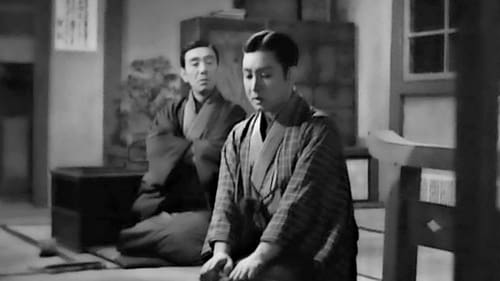
The Way of Drama unfolds in the world of kabuki in Osaka, but also addresses the politics of popular culture and the rivalry between theatrical styles like those used by amateur actors to dramatise contemporary events.

A small community in wartime Japan learn how to make do with less.

Police Officer Kumazawa
Stalwart soldiers of the Japanese Empire – Japanese and Korean alike – stand in defense of a military outpost threatened by "bandits."

War-time jidaigeki by Eisuke Takizawa. Didn't find anything about it online, but Takizawa was a well-regarded director in his time. Akira Kurosawa worked as A.D. on several of his films.

The premature death of a young mother serves as inspiration for her husband and son.

A bizarre murder at a hot springs resort threatens to disrupt an Edo detective's (Hasegawa) vacation. When his hot-blooded wife (Yamada) starts snooping around, however, he finds himself reluctantly drawn in to the case.

Toragoro

Kurôsuke
This epic depicts the battle between Uesugi Kenshin and Takeda Shingen. The focus of the story is the struggle by the unit leader in charge of the main supply wagons and the supply troops to transport materiel to the Uesugi army. To this are added episodes involving an itinerant woman.

Jurobei, a kaisen tonya (wholesaler in port) in Awa, was wronged and killed on the day of the Dance Festival by the evil merchant & the chamberlin. His brother (Kazuo Hasegawa) vowed vengeance on the day of his brother's death. So every year the villains are worried during the Awa Dance Festival (which is part of the Obon festival), but nothing has ever happened, until seven years later...

Japanese war-era film

Tokugawa Ieyasu
A sentimental tale of the filial love between shogun Iemitsu (matinee idol Hasegawa) and his loyal old retainer Hikoza (comedian Roppa, playing somewhat against type).

Feature film.

A Japanese army engineer (Hasegawa) on the mainland must put his personal feelings for a beautiful Chinese woman (Ri) aside if he is to succeed at building a highway through the "bandit"- (aka anti-Japanese militia-) infested hinterlands.

Jidaigeki from 1940

Japanese war movie

Japanese movie

Japanese film.

The film recounts the tragedy of a young outlaw.

Suruga Arikawa
Prewar jidaigeki starring Denjiro Okochi
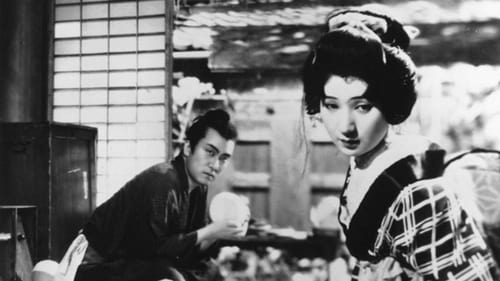
Hachiemon Fuji
居酒屋に居候する河内山宗俊と、用心棒の金子市之丞。その日暮らしの生活を送る彼らにとって、甘酒屋の娘・お浪は心の慰めだった。ある日、お浪が不良の弟・広太郎の借金のために身売りすることを知った宗俊と市之丞は、彼女を救うべく手を組むが...。

The sequel to the 1935 film Great Bodhisattva Pass

Kinshiro takes over the family, but he thinks he is going to replace the son of his stepmother but runs into trouble when he befriends the yakuza.

1930s Japanese film.

Japanese historical film.

Adaptation of the novel by Osaragi Jirō. Again scripted by the legendary Yamanaka Sadao

Gantaro Path

Rokue Andô
Adaptation of the novel by Osaragi Jirō.

Directed by Daisuke Itō.

A lost film that tells a story of Jirokichi, a notorious thief

Jirokichi the Rat is a notorious thief. While on the run from the law, he discovers an unexpectedly honourable side of himself, and maybe some form of redemption.

A lost film telling a story of Jirokichi the Rat, a notorious thief

Jesuit priests in Japan during the 17th century are persecuted by the shogunate to for trying to spread Christianity.

A Japanese silent film


























